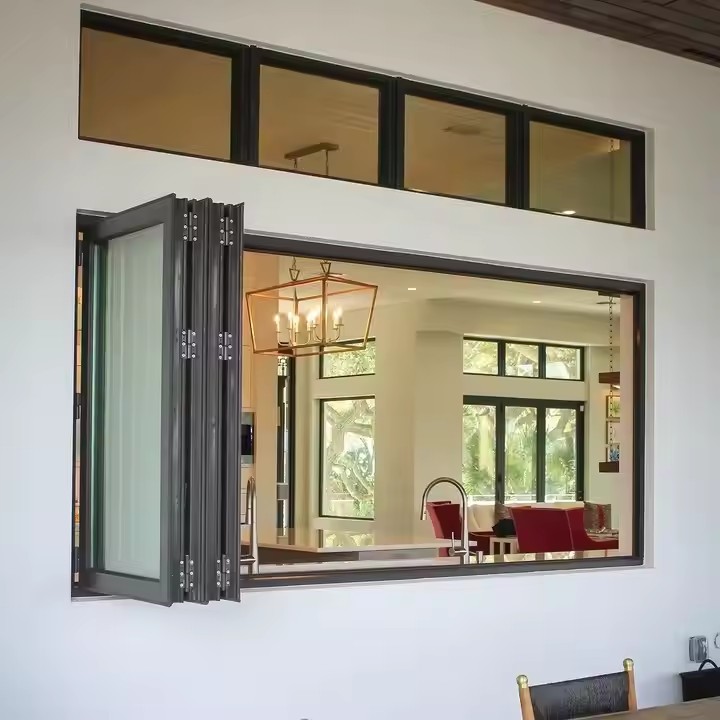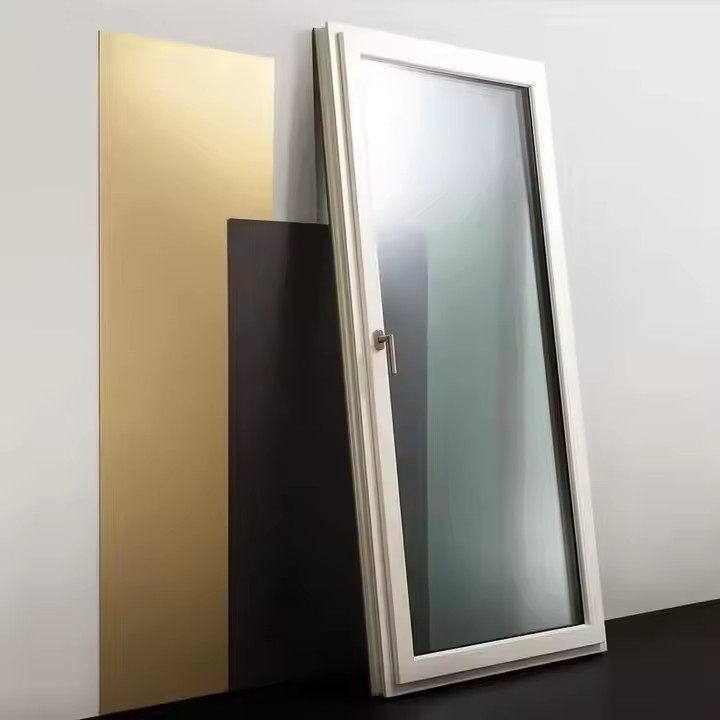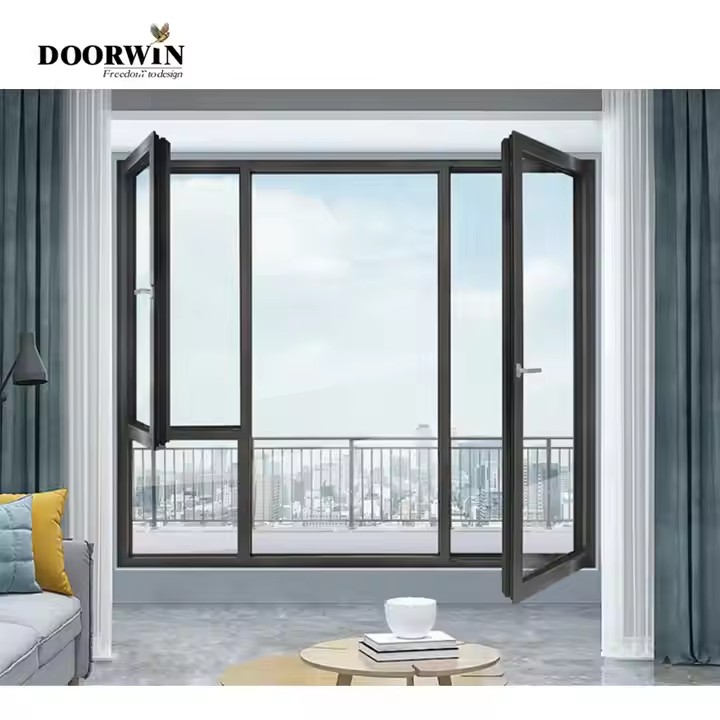The primary function of folding doors is to enhance security, but they also serve to improve privacy in the home. So, how can folding doors enhance privacy? I believe there are several key aspects to consider:

Material Selection
When choosing materials for folding doors, opting for opaque materials can effectively conceal the interior of the home, deterring outsiders from prying. In contrast, a transparent glass folding door allows anyone outside to see everything inside. If someone notices that a home has high-end decorations, it can actually compromise personal safety. Additionally, using solid wood can enhance privacy; for instance, solid wood folding doors made from hardwoods like walnut or cherry have a certain thickness that effectively blocks visibility, protecting the home’s privacy. The tight grain of the wood leaves no gaps for prying eyes. Moreover, wood can be treated with stains or paints to further enhance its opacity. The combination of thick wood and finish meets both aesthetic and security requirements.
For example, composite materials can also achieve good privacy. PVC folding doors can be made in completely opaque or semi-transparent styles depending on your needs. The dense internal structure of PVC allows for frosted or textured surfaces, effectively obscuring visibility. It’s also relatively low-cost and easy to install. With good sealing, convenient installation, and aesthetic texture options, these features together can meet a variety of customer needs. Different materials for folding doors can satisfy diverse client requirements since every customer has unique preferences for their home decor, as well as budget considerations. Wood and glass tend to be more expensive, so decisions should be based on personal finances and installation locations.

Another material is fiberglass. Fiberglass folding doors are not only strong and durable but can also be manufactured with special coatings or fiber structures that allow light to enter while preventing clear visibility from the outside, thus protecting privacy. While this option is more costly, it might be worth considering based on individual financial situations and intended use.
If you need doors or have any related questions, you can contact Dingtuo Door & Window Industrial Co., Ltd., which has been specializing in door and window production for eight years. Contact via WhatsApp at +8613809889264.
Installation and Layout Design
The design and layout of folding doors should correspond to their installation location, including the opening method and angles, as well as multi-panel folding options. Using multiple folding doors allows for better control of opening angles and coverage areas. The design should also consider the size of the doors. For example, if folding doors are installed in an open office, angled folding doors can help distribute the weight of the glass effectively. In a scenario where four folding doors are installed between an open kitchen and dining area, you can fold one or two doors to partially block off areas like the kitchen washing or cooking zones, while keeping other parts open for communication and light. This flexibility allows for adjustments based on interior layout and privacy needs.
The advantage of folding doors lies in their adaptability to individual living and usage requirements, making them convenient and flexible for varying scenarios. There are also corner folding door designs that work well in unique space layouts, such as L-shaped rooms or areas with corners, maximizing space usage while enhancing privacy. For instance, in a bedroom with a walk-in closet, a corner folding door can completely enclose the closet area, and when opened, it can fold into the wall corner without taking up much space. Folding doors can reduce the footprint required, providing a broader space for use, which is both practical and stylish, effectively meeting people’s needs.

Coordination with Installation Location and Surrounding Environment
Integrating folding doors into walls or partitions can effectively divide a large room into distinct areas. By embedding folding doors into walls or large partitions, they can blend seamlessly with the surrounding environment, reducing gaps and enhancing privacy. Depending on household needs, folding doors can also be used to split a room, with one half serving as a living room and the other as a bedroom—this exemplifies the benefits of folding doors. For instance, in a Japanese-style home, installing wooden folding doors between a tatami room and the living room creates a continuous visual barrier, protecting privacy when the door is closed.
Folding doors can also be complemented by additional features such as curtains to further safeguard personal privacy. Installing curtains next to folding doors is an effective way to enhance privacy. When the folding doors are closed, if additional privacy is needed, curtains can be drawn. For example, in a living room with folding doors leading to a balcony, curtains can be pulled in the evening to prevent outsiders from seeing indoor activities. The style and material of curtains can be selected to match the overall home decor; heavy blackout curtains offer better privacy, while sheer curtains can softly filter light during the day.


